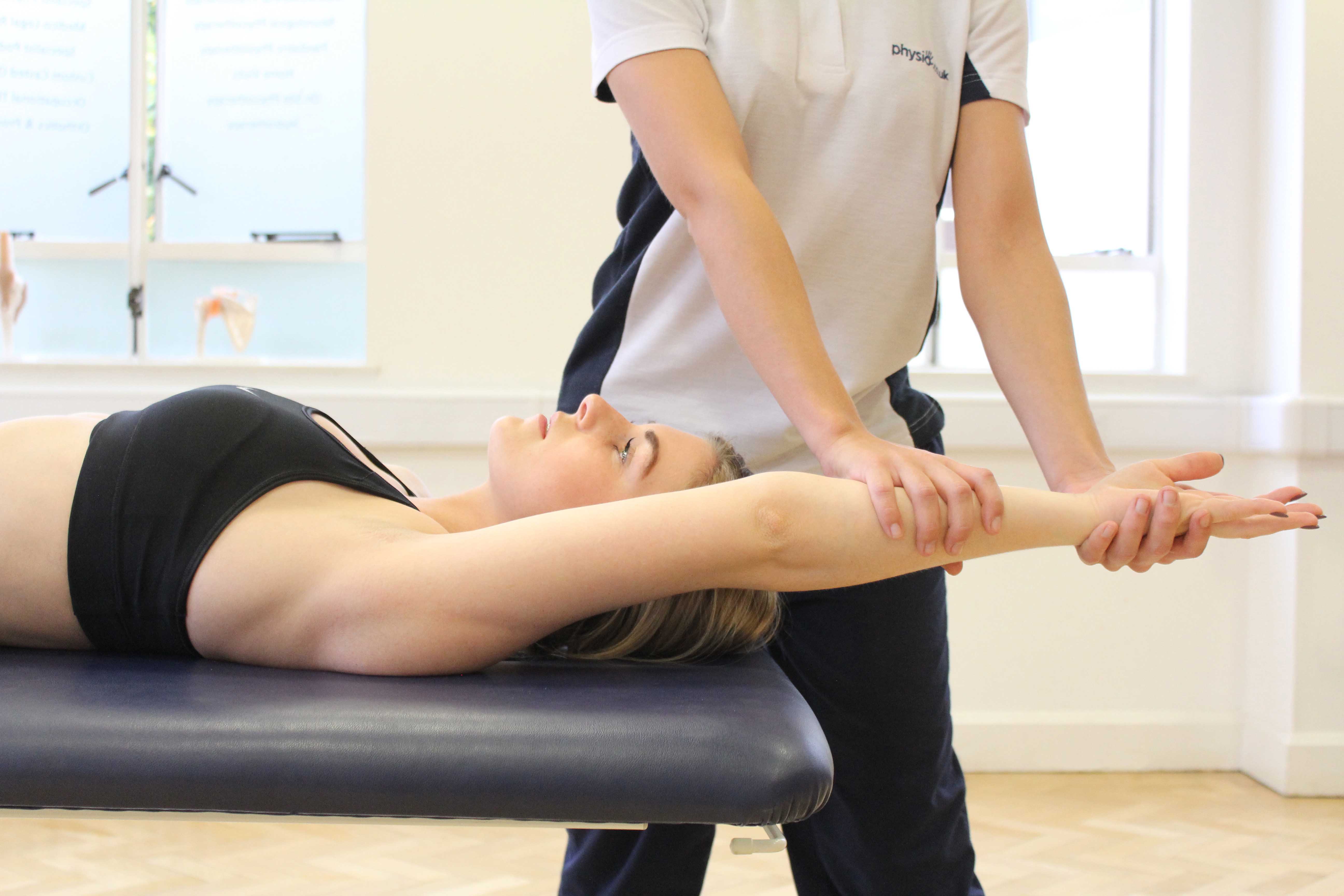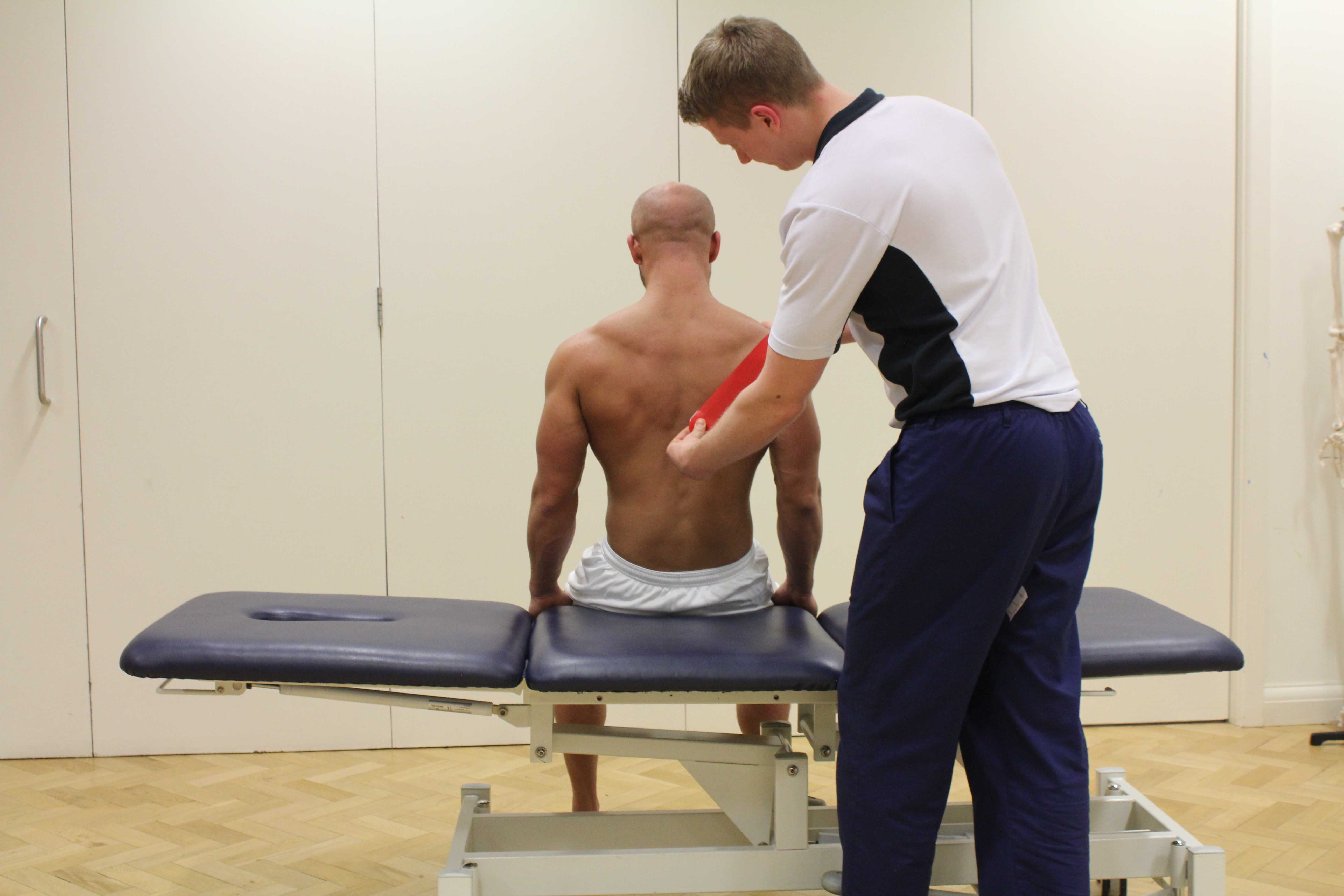The rotator cuff comprises of 4 muscles. These are:
- Supraspinatus–initiates abduction (arm out to the side)
- Subscapularis – performs internal rotation(arm across belly)
- Infraspinatus – performs external rotation with elbow at side
- Teres Minor – performs external rotation with arm at 90 degrees
As these tendons run under the acromion they are vulnerable to repetitive damage. Here the tendons become pressed against the under surface of the acromion, becoming impinged, gradually weakening the muscles leading to damaged or torn tendons. A tear may also result from a traumatic event or overuse with elderly people also prone to arthritic changes causing the tendon to degrade.
When you rotator cuff is completely torn, you require a surgical procedure to reattach the muscle and allow your shoulder to return to normal. This surgery can be performed either arthroscopically (key hole) or open (exposing the tear). A shoulder debridement can also accompany this surgery. The most common rotator cuff muscle to be tor are your Infraspinatus and Supraspinatus, however is also possible to significantly tear your Subscapularis and teres minor.
Rotator cuff injuries can also be identified through the inability to perform specific movements, an excessive amount of passive movement in the opposite direction of what that muscle performs, significantly reduced strength pain and bruising. For example if you had torn your infraspinatus you would be unable to rotate your arm outwards, have excessive passive internal rotation and significantly reduced strength when externally rotating your shoulder. If there is uncertainty regarding the extent of your rotator cuff injury, and whether surgery is required, an accurate diagnosis can be obtained with an MRI scan. this allows your doctor to assess the severity of the tear and the most appropriate treatment.
 Above: Mobilisations and stretches of the glenohumeral joint by a MSK Physiotherapist
Above: Mobilisations and stretches of the glenohumeral joint by a MSK PhysiotherapistPhysiotherapy prior to Rotator Cuff Surgery
Physiotherapy prior to rotator cuff surgery is an effective intervention helping to strengthen your shoulder and reduce your pain. Physio.co.uk will focus on managing your acute symptoms and providing effective rehabilitation and management methods to allow you to continue to functionally use your arm. If surgery is delayed there can result in a less favourable outcome and so physio becomes highly integral to maintain function. Physiotherapy will also help prepare your shoulder for surgery providing a stronger platform for which to begin post-surgical rehab.Treatment will include:
- Cryotherapy
- Pain management
- Taping and bracing
- Passive and active assisted movements
- Strengthening programme
- Scapula setting exercises
- Maintenance of tissue length
- Prevention of secondary injuries
- Hydrotherapy
- Home exercise programme
- Advice on surgery and post surgical management
Symptoms following Rotator Cuff Surgery
Following rotator cuff repair your arm will be placed in a protective sling for 4-6 weeks to protect the repair and aid recovery. Subsequent to surgery it is normal for you to experience common symptoms. These include:
- Pain
- Swelling
- Bruising
- Reduced shoulder movement
- Hypersensitivity around skin incisions
Physiotherapy following Rotator Cuff Surgery
Following rotator cuff surgery, Physio.co.uk will perform a thorough assessment of your shoulder highlighting specific problems and weaknesses. From this we will compile a progressive treatment programme in accordance with surgical protocols so that your shoulder is accurately and effectively rehabilitated.
Weeks 1-3
Physio.co.uk will initially manage acute symptoms helping to minimise any post operative complications. Early mobilisation will be encouraged along with stretching and retraining shoulder stability. Treatment will include:
- Cryotherapy
- Pain management
- Stretches
- Soft tissue release
- Scapular stability exercises
- Taping – muscle re-training and negative inhibition
- Passive and active assisted range of movement exercises below shoulder height
- Pendular exercises
- Range of movement and strengthening exercises for elbow, wrist and hand
- Sling management
- Biomechanical assessment
- Wound desensitisng
- Advice and education
Weeks 4-6
After 3 weeks of physiotherapy, you will be encouraged to discontinue use of your sling to encourage mobilisation and the prevention of contractures. Physio.co.uk will re-asses the post-operative stage of your shoulder and continue to develop your treatment plan with a focus on the restoration of accurate biomechanical movement. Strengthening work will begin along with proprioceptive shoulder exercises. Treatment will include:
- Passive and active assisted range of movement exercises to full range
- Active range of movement exercises
- Isometric strengthening of deltoid and rotator cuff
- Scapular stability exercises
- Proprioceptive exercises
- Soft tissue release
 Above: Taping is one form of treatment which may be affectiv for rotator cuff issues.
Above: Taping is one form of treatment which may be affectiv for rotator cuff issues.Weeks 7-12
With 6 weeks of physiotherapy with Physio.co.uk you will have seen a steady but significant increase of function of your shoulder. Physio.co.uk will continue to intensify your rehabilitation in order to attain full range of movement and ensure an early return to occupational and sporting activities. Treatment will include:
- Range of movement exercises to achieve full range of movement
- Rotator cuff strengthening throughout range
- Scapular stability
- Glenohumeral mobilisations
- Proprioceptive training – PNF patterns
- Capsular stretching
- Soft tissue release
- Muscular endurance
- Integration of occupational and sport specific movements
Weeks 12+
Following 12 weeks of physiotherapy you will have achieved a substantial increase in movement, strength and functional ability of your shoulder. Our goal at Physio.co.uk is to achieve full range of movement and full strength with a clear focus on attaining your personal goals. Physio.co.uk will continue to manage your injury, providing a comprehensive and continued rehabilitation programme to ensure the success of your surgery. Treatment will focus on:
- Range of movement exercises to achieve full range
- Advanced strengthening throughout range
- Advanced proprioceptive training
- Sport specific exercises including a return to sporting activities
- Home exercise programme
- Advice and long term management
Summary
Rotator cuff repair is a surgical operation to reattach the torn rotator cuff muscles back to its site of attachment. The rotator cuff is a group of 4 muscles which attach your scapula to your humerus. Together these muscles provide stability and strength while individually they initiate specific glenohumeral movements. These muscles can become damaged and torn due to trauma, overuse or through arthritic changes. When there is a complete tear, surgery is indicated to repair this. Physiotherapy is an essential component of rehabilitation in order for you to return to your previous level of function as best able. Physio.co.uk will provide a comprehensive and extensive rehabilitation programme, with a clear focus on personal goals, to strengthen and return full movement and function to your shoulder. Call Physio.co.uk now on 0330 088 7800 for more information or to book an appointment please contact us.

 0330 088 7800
0330 088 7800

































